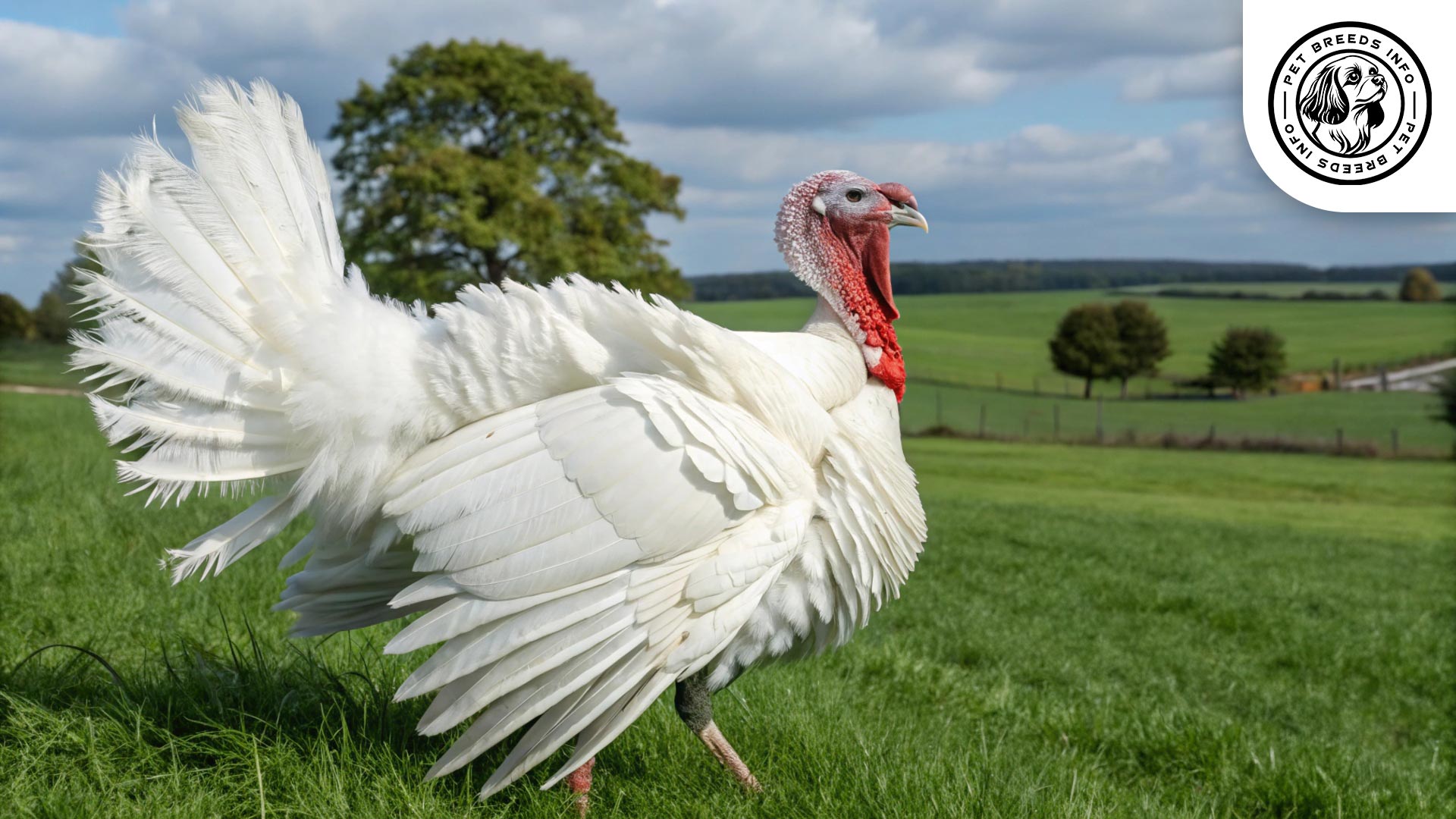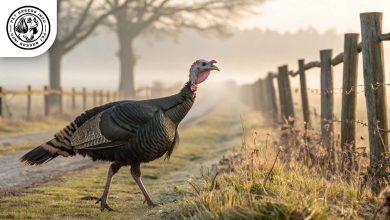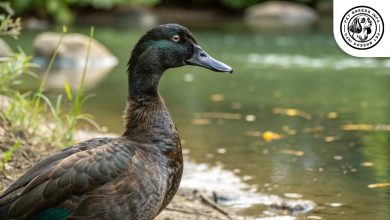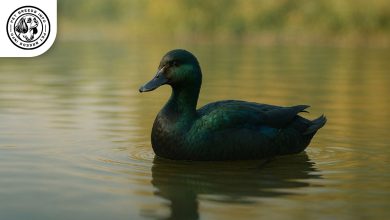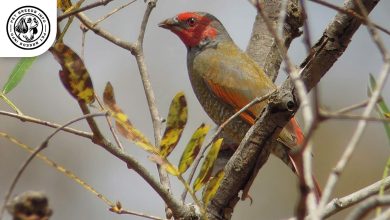Giant White Turkey Breed: Personality, Lifespan, Food & Care
General Introduction of the Breed
The Giant White Turkey, commonly known as the Large White Turkey, is one of the most popular domestic turkey breeds. It is mainly raised for commercial meat production due to its large size and rapid growth. This breed originates from the United States, where selective breeding was used to develop a turkey with excellent meat quality and high yield.
Table of Contents
| Common Name | Giant White Turkey, Large White Turkey |
| Scientific Name | (Not mentioned in the text) |
| Origin | United States |
| Size | Males: 35-50 lbs (16-23 kg), Females: 20-30 lbs (9-14 kg) |
| Lifespan | Typically around 2-3 years in commercial settings, can be longer in well-managed environments. |
| Talking Ability | (Not applicable to turkeys) |
| Colors | White plumage |
| Noise Level | (Implied to be typical poultry sounds, but not specifically detailed) |
| Social Behavior | Generally calm and social, can recognize caregivers, may become territorial, especially during mating season, generally do well with other poultry. |
Physical Characteristics
Giant White Turkeys are characterized by their large body size, with males (toms) weighing between 35-50 lbs (16-23 kg) and females (hens) ranging from 20-30 lbs (9-14 kg).
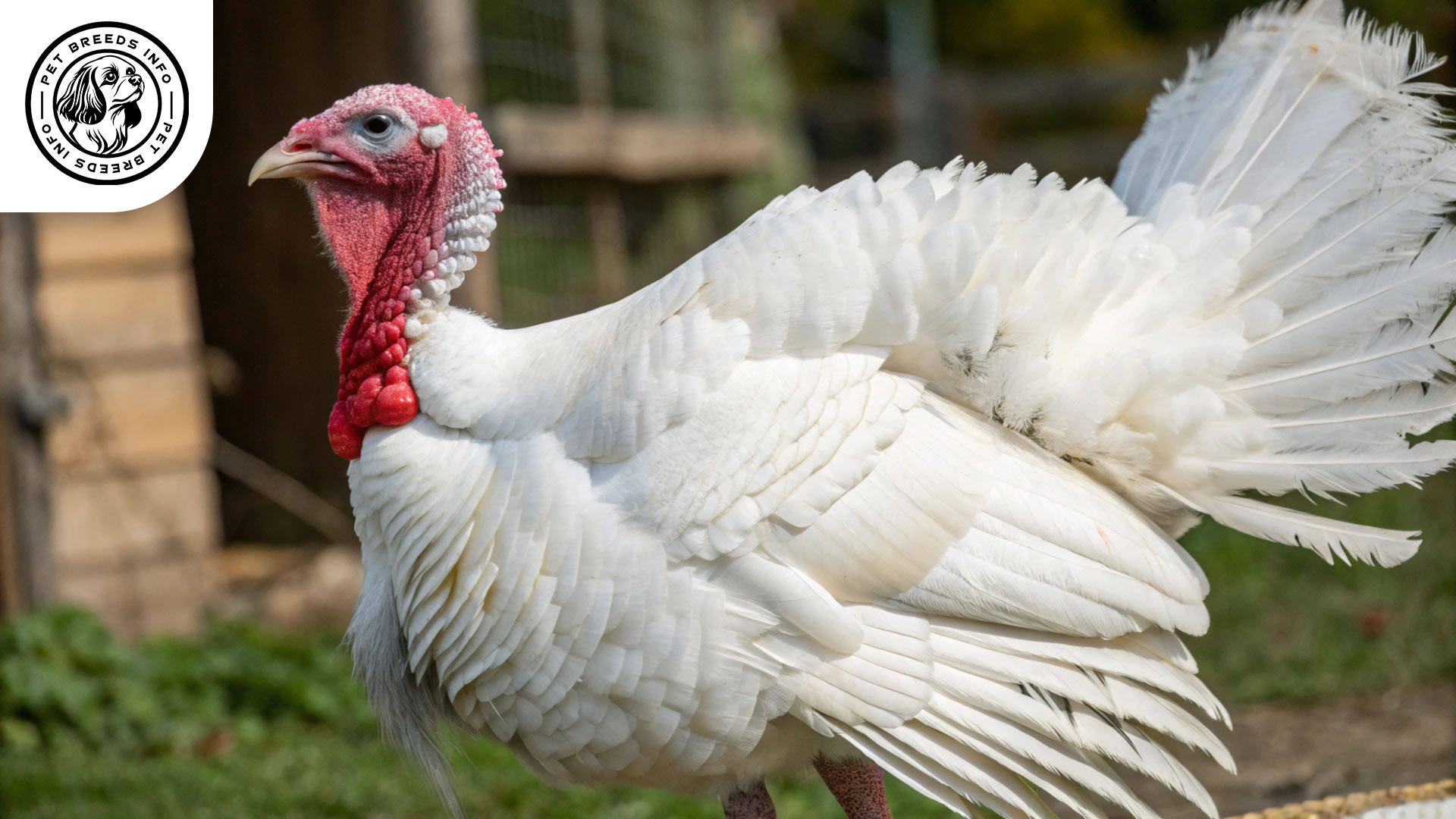
They have white plumage, which is preferred in commercial production as it results in a cleaner appearance once processed. Their eyes are dark brown, and they have a red wattle and snood, which are common features in domestic turkeys. The beak is light-colored and slightly curved, while the legs are strong and well-formed to support their considerable weight.
Read More: Egyptian Goose
Personality and Temperament
Giant White Turkeys are generally calm and can be quite social, especially when raised in a well-managed environment. They are intelligent birds that can recognize their caregivers and exhibit curiosity. Due to their large size, they are not as energetic as smaller heritage breeds but still require space to move around. They are relatively friendly and can coexist with other poultry when properly introduced. However, toms may display aggressive tendencies, particularly during the breeding season.
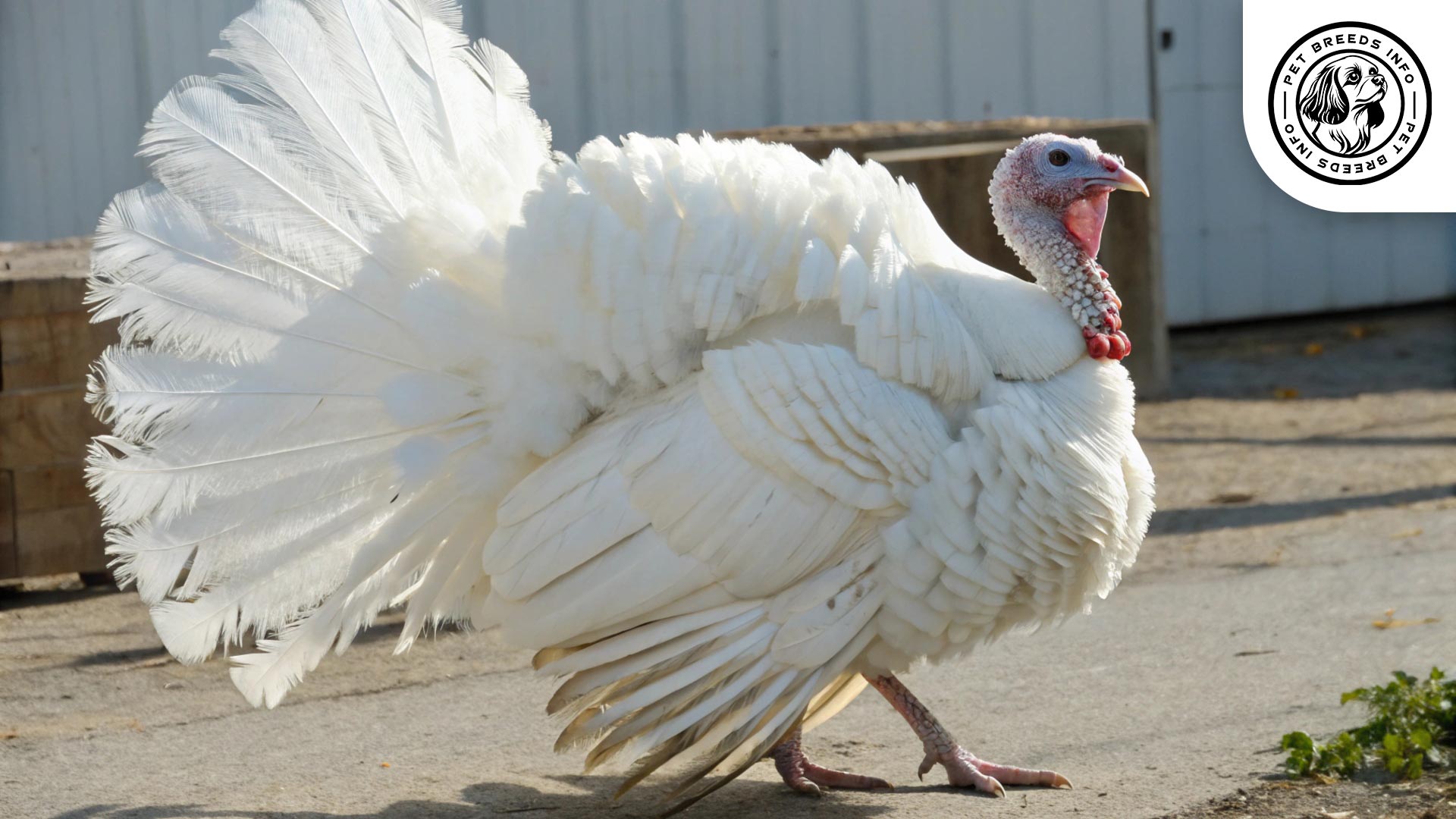
Care and Maintenance Requirements
These turkeys require a spacious environment to accommodate their large size. While they can be raised in a fenced area, they benefit from free-ranging, which allows them to exercise and forage naturally. Proper housing with adequate ventilation is necessary to prevent respiratory issues. Regular grooming is not required, but their feathers should be kept clean, and their feet should be checked for potential sores due to their weight. Giant White Turkeys are somewhat sensitive to extreme temperatures, so they need shelter in cold weather and shade in hot climates.
Diet and Nutrition
These turkeys require a high-protein diet to support their rapid growth. Commercial turkey feed with at least 24-28% protein is ideal for young poults, while mature birds can be fed a balanced diet containing grains, vegetables, and proteins. Avoid feeding them processed foods, excessive salt, or toxic plants. Proper portion control is crucial to prevent obesity-related health issues.
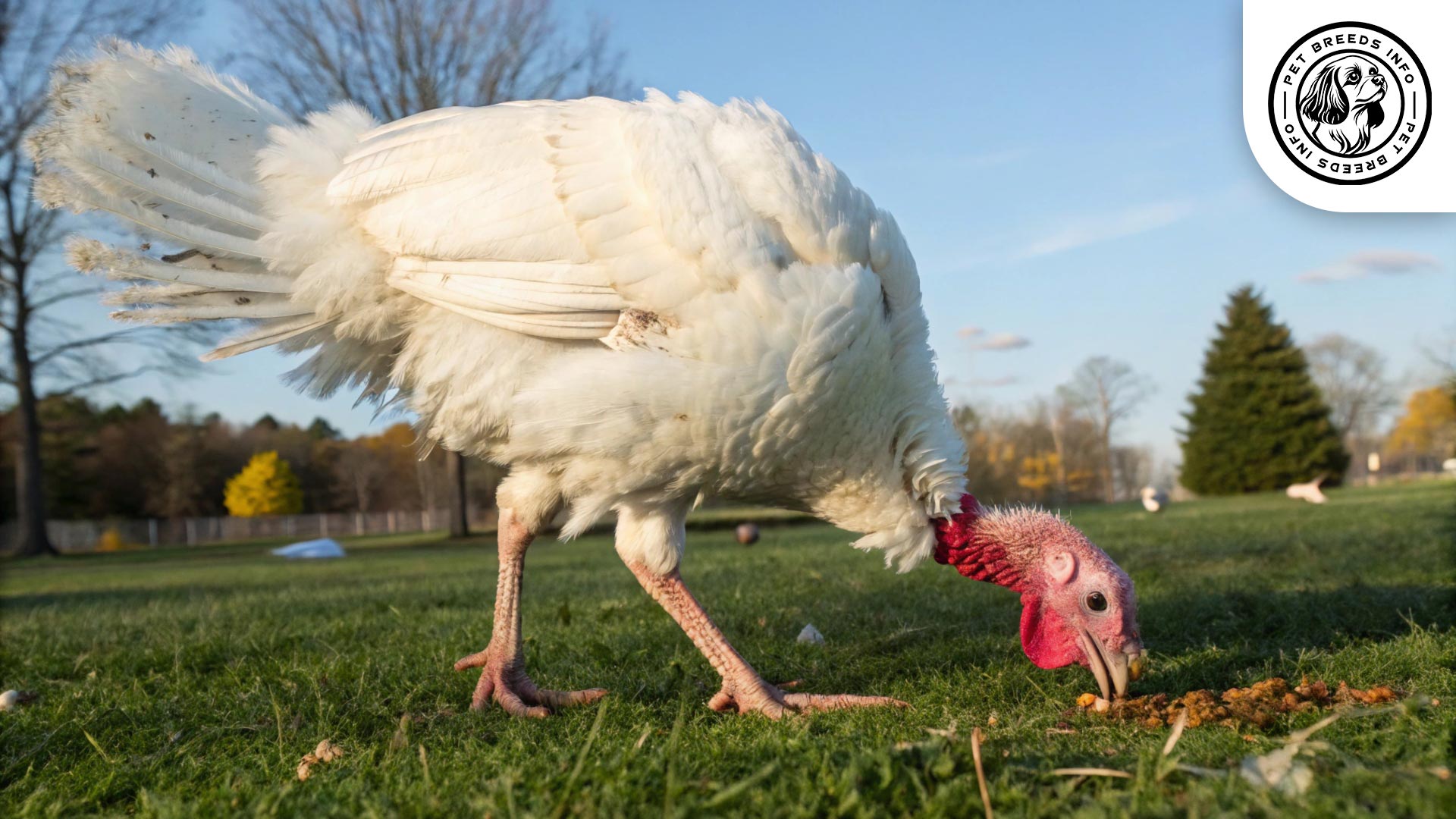
Health and Common Medical Issues
Giant White Turkeys are prone to certain health issues like leg problems due to their weight, respiratory infections, and heart conditions. Ensuring they have a proper diet and sufficient space to move can help reduce these risks. Their lifespan is typically around 2-3 years in commercial settings but can be longer in well-managed environments. Routine vaccinations and periodic health checks are necessary for maintaining their well-being.
Read More: Canadian Goose
Training and Behavior Management
Turkeys are trainable to some extent, particularly in recognizing feeding times and responding to human interactions. Early handling and exposure to different environments help them become accustomed to their caregivers and surroundings. Consistency and gentle reinforcement work best when managing their behavior.
Interaction with Other Animals and Humans
Giant White Turkeys can be sociable when raised around humans and other farm animals. They generally do well with other poultry but may become territorial, especially during mating season. They can be raised by families with experience in poultry care but may not be ideal as backyard pets due to their large size and space requirements.
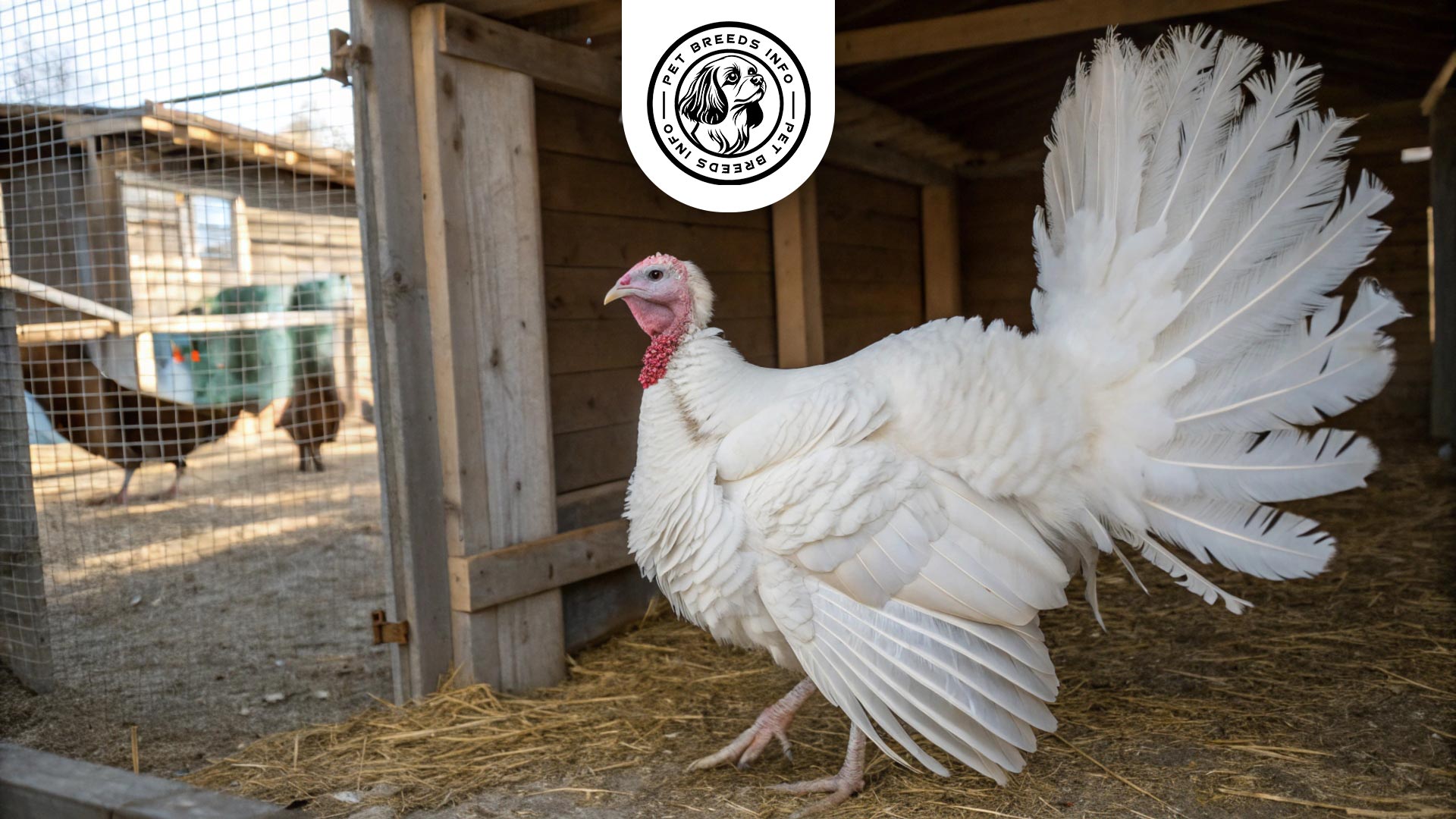
Price and Availability
Giant White Turkeys are widely available through hatcheries and poultry farms. The cost of purchasing a poult (young turkey) can range from $5 to $15, depending on the breeder and location. When purchasing, it’s important to source chicks from reputable turkey breeders to ensure good genetics and healthy birds. Adoption from farms or rescue organizations is also an option for those looking to raise turkeys ethically.
Conclusion and Final Thoughts
Giant White Turkeys are an excellent choice for farms and commercial meat production due to their rapid growth and high meat yield. However, they require proper space, diet, and medical attention to thrive. They are social and intelligent birds but may not be suited for small backyard setups. Prospective owners should consider their space availability, experience with poultry, and commitment to their care before choosing this breed.
Read More: Emden Goose
FAQ
What are Giant White Turkeys primarily raised for?
They are mainly raised for commercial meat production due to their large size and rapid growth.
How big do Giant White Turkeys get?
Males (toms) typically weigh between 35-50 lbs, and females (hens) range from 20-30 lbs.
What color are Giant White Turkeys?
They have white plumage.
Are Giant White Turkeys friendly?
They are generally calm and can be quite social, especially when raised in a well-managed environment.
What is the typical lifespan of a Giant White Turkey?
Their lifespan is typically around 2-3 years in commercial settings but can be longer with proper care.
